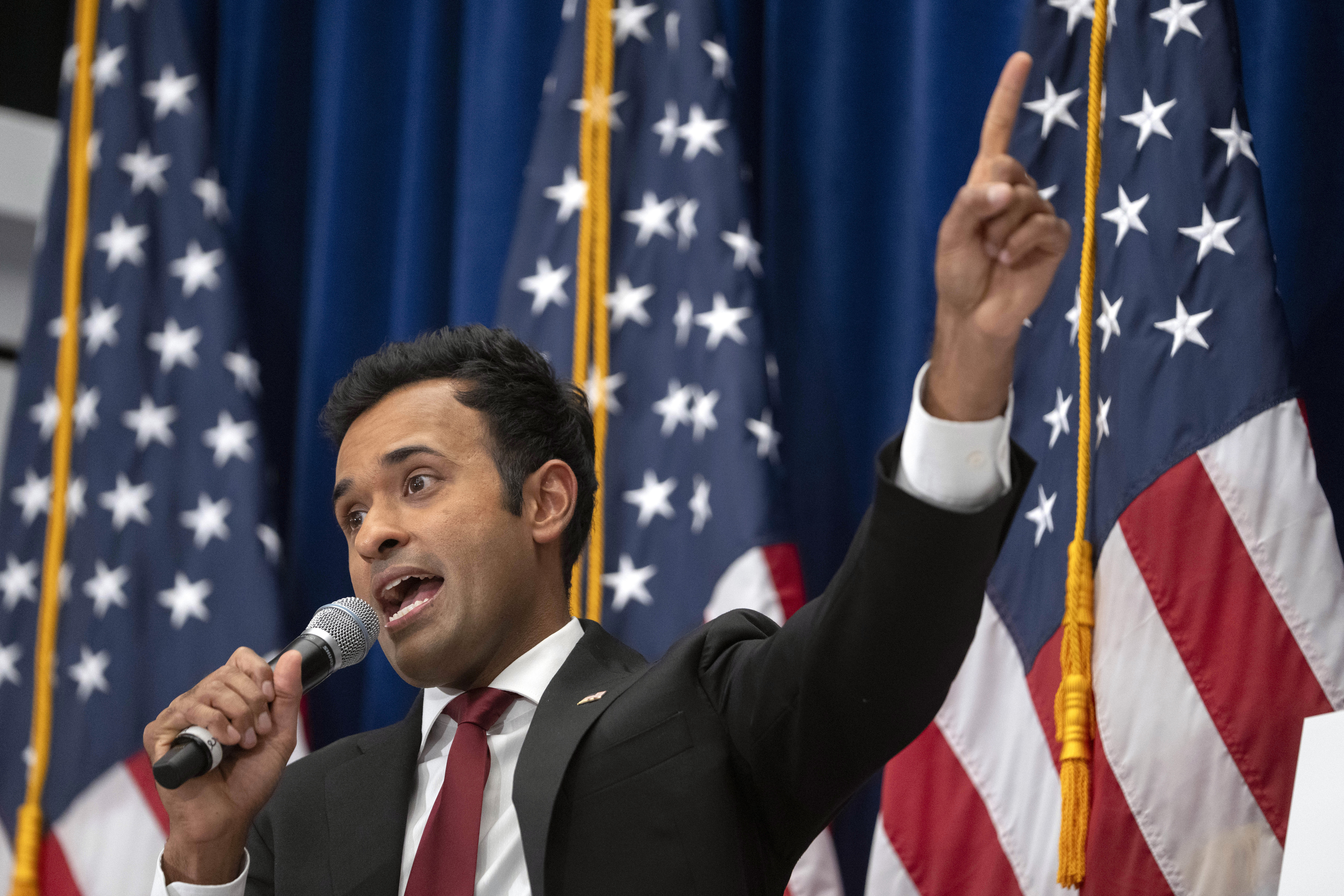
GOP candidate Vivek Ramaswamy has vowed to “gut” the system for H-1B temporary worker visas if he wins the White House.
It’s the very system he’s used in the past to hire high-skilled foreign workers for the pharma company that built much of his wealth.
From 2018 through 2023, U.S. Citizenship and Immigration Services approved 29 applications for Ramaswamy’s former company, Roivant Sciences, to hire employees under H-1B visas, which allow U.S. companies to employ foreign workers in tech and other specialized jobs.
Yet, the H-1B system is “bad for everyone involved,” Ramaswamy told POLITICO.
“The lottery system needs to be replaced by actual meritocratic admission. It’s a form of indentured servitude that only accrues to the benefit of the company that sponsored an H-1B immigrant. I’ll gut it,” he said in a statement, adding that the U.S. needs to eliminate chain-based migration.
“The people who come as family members are not the meritocratic immigrants who make skills-based contributions to this country.”
Ramaswamy stepped down as chief executive officer of Roivant in February 2021, but remained the chair of the company’s board of directors until February this year when he announced his presidential campaign. As of March 31, the company and its subsidiaries had 904 full-time employees, including 825 in the U.S., according to its SEC filings.
When asked about the mismatch in the GOP presidential hopeful’s policy stance and his past business practices, press secretary Tricia McLaughlin said the role of a policymaker “is to do what’s right for a country overall: the system is broken and needs to be fixed.”
“Vivek believes that regulations overseeing the U.S. energy sector are badly broken, but he still uses water and electricity,” she said in a statement. “This is the same.”
Ramaswamy, who is himself the child of immigrants, has captured headlines for his restrictionist immigration policy agenda.
While not new to the GOP playbook, his rhetoric has at times gone farther than the other candidates, as he calls for lottery-based visas, such as the H-1B worker visas, to be replaced with “meritocratic” admission. He’s also said he’d use military force to secure the border, and that he would deport U.S.-born children of undocumented immigrants.
H-1B visas are highly sought after, and the demand for these workers continues to increase: For fiscal year 2021, U.S. businesses submitted 780,884 applications for just 85,000 available slots, jumping by more than 60 percent.
Ramaswamy acknowledged his own experience with immigration during his opening remarks at the first GOP debate in Milwaukee.
“My parents came to this country with no money 40 years ago,” he said. “I have gone on to found multi billion-dollar companies.”
Ramaswamy’s stance on H-1B visas is reminiscent of the 2016 Trump campaign, when then-candidate Donald Trump, who has also hired a number of foreign workers under H-1B visas for his businesses, took a hardline stance on these foreign workers before later softening his rhetoric.
As president, Trump temporarily suspended new work visas and blocked hundreds of thousands of foreign workers from U.S. employment, as part of his sweeping effort to limit the number of immigrants coming into the United States.

 1 year ago
1 year ago








 English (US)
English (US)